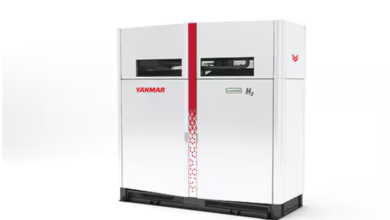UNSW converts diesel engine to run on hydrogen
The most immediate potential use for the new technology is in industrial locations where permanent hydrogen fuel supply lines are already in place.

The UNSW Engine Research Laboratory team has developed a new Hydrogen-Diesel Direct Injection Dual-Fuel System that significantly cuts carbon emissions.
Engineers from UNSW Sydney have successfully converted a diesel engine to run as a hydrogen-diesel hybrid engine – reducing CO2 emissions by more than 85 per cent in the process.
The team, led by Professor Shawn Kook from the School of Mechanical and Manufacturing Engineering, spent around 18 months developing the Hydrogen-Diesel Direct Injection Dual-Fuel System, which means existing diesel engines can run using 90% hydrogen as fuel.
The researchers say that any diesel engine used in trucks and power equipment in the transportation, agriculture and mining industries could be retrofitted to the new hybrid system in just a couple of months.
The UNSW team’s solution to the problem maintains the original diesel injection into the engine but adds a hydrogen fuel injection directly into the cylinder.
The collaborative research, performed with Dr Shaun Chan and Professor Evatt Hawkes, found that specifically timed hydrogen direct injection controls the mixture condition inside the cylinder of the engine, which resolves harmful nitrogen oxide emissions that have been a major hurdle for the commercialisation of hydrogen engines.
The Hydrogen-Diesel Direct Injection Dual-Fuel System features independent control of hydrogen direct injection timing and diesel injection timing, enabling full control of combustion modes – premixed or mixing-controlled hydrogen combustion. Image from Prof. Shawn Kook
Importantly, the new Hydrogen-Diesel Direct Injection Dual-Fuel System does not require extremely high-purity hydrogen, which must be used in alternative hydrogen fuel cell systems and is more expensive to produce.
And compared to existing diesel engines, an efficiency improvement of more than 26 per cent has been shown in the diesel-hydrogen hybrid.
That improved efficiency is achieved by independent control of hydrogen direct injection timing and diesel injection timing, enabling full control of combustion modes – premixed or mixing-controlled hydrogen combustion.
The research team hope to be able to commercialise the new system in the next 12 to 24 months and are keen to consult with prospective investors.
